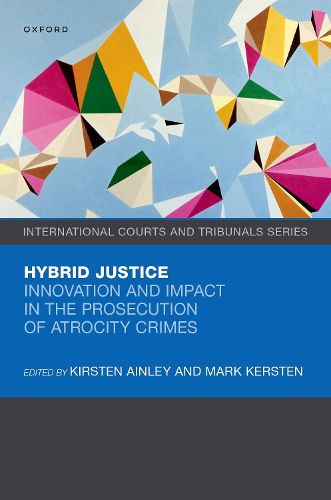Readings Newsletter
Become a Readings Member to make your shopping experience even easier.
Sign in or sign up for free!
You’re not far away from qualifying for FREE standard shipping within Australia
You’ve qualified for FREE standard shipping within Australia
The cart is loading…






The last decade has seen the unexpected re-emergence of hybrid and internationalised courts - institutions which operate with varying combinations of national and international law, procedure, and staff. Whilst the establishment of the permanent International Criminal Court should have made hybrid mechanisms largely obsolete, hybrids have recently been established or proposed for atrocity crimes committed in Chad, South Sudan, Israel/Palestine, the Central African Republic, Kosovo, Syria, Sri Lanka, Myanmar, The Gambia, Liberia, and Ukraine. Hybrid Justice critically examines the resurgent promise of hybrid courts. Focusing on the fields, practices, innovations, and of hybrid courts, the contributors evaluate hybrids' success, and in doing so, help to clarify the conditions and mechanisms that makes hybrids likely to succeed in their mandates and impacts. The authors focus on hybrid courts and resilience: the resilience of hybrid mechanisms to withstand political and other pressures to deliver justice and accountability, and the potential contribution of hybrids to the resilience of affected communities. Borne out of a collaboration between lawyers, academics, and activists, this edited volume provides a uniquely comparative account of the development of hybrid courts in recent years.
$9.00 standard shipping within Australia
FREE standard shipping within Australia for orders over $100.00
Express & International shipping calculated at checkout
The last decade has seen the unexpected re-emergence of hybrid and internationalised courts - institutions which operate with varying combinations of national and international law, procedure, and staff. Whilst the establishment of the permanent International Criminal Court should have made hybrid mechanisms largely obsolete, hybrids have recently been established or proposed for atrocity crimes committed in Chad, South Sudan, Israel/Palestine, the Central African Republic, Kosovo, Syria, Sri Lanka, Myanmar, The Gambia, Liberia, and Ukraine. Hybrid Justice critically examines the resurgent promise of hybrid courts. Focusing on the fields, practices, innovations, and of hybrid courts, the contributors evaluate hybrids' success, and in doing so, help to clarify the conditions and mechanisms that makes hybrids likely to succeed in their mandates and impacts. The authors focus on hybrid courts and resilience: the resilience of hybrid mechanisms to withstand political and other pressures to deliver justice and accountability, and the potential contribution of hybrids to the resilience of affected communities. Borne out of a collaboration between lawyers, academics, and activists, this edited volume provides a uniquely comparative account of the development of hybrid courts in recent years.